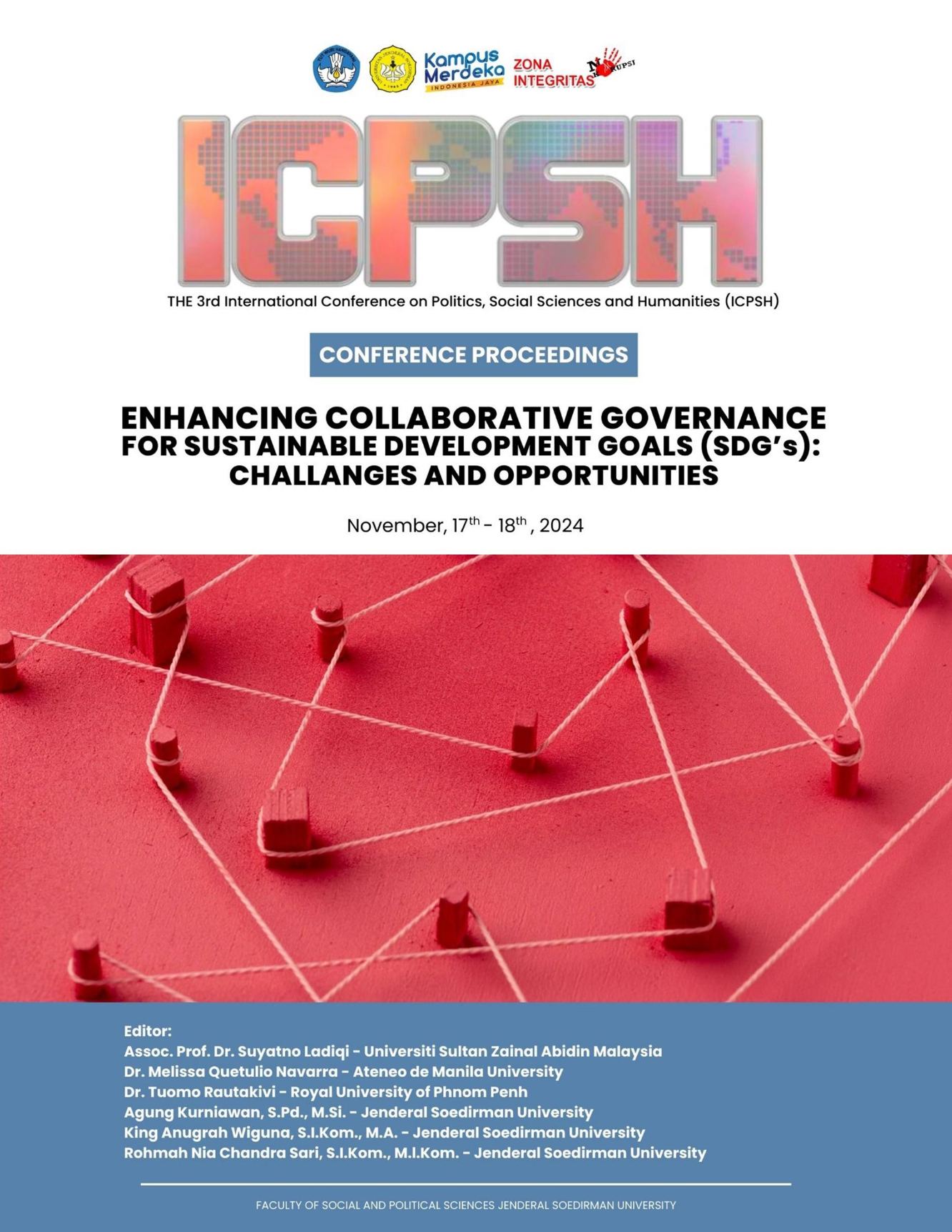Collaborative Governance in Terrorist Rehabilitation: A Case Study of the Indonesian Government and Accept International in Nusakambangan Correctional Institutions
Abstract
This study examines the collaborative governance between the Indonesian Government and Accept
International (AI) in implementing deradicalisation programs for terrorism inmates at Nusakambangan
Correctional Institutions. Using the Co-Governance and Multi-Stakeholder Governance frameworks, the
research explores how state and non-state actors integrate resources, expertise, and capacities to address
radicalisation challenges. The study employs a qualitative method, utilising Grounded Theory to analyse
primary data collected through purposive sampling. Interviews were conducted with officials from Pasir
Putih Class IIA and Karanganyar Class IIA Correctional Institutions, alongside a review of supporting
documentation. The findings highlight that effective collaboration is built on principled engagement,
shared motivation, and capacity for joint action. AI, leveraging its innovative "Redefine, Prepare, Action"
(RPA) model, complements Kemenkumham's legal and institutional frameworks, creating synergies in
resource allocation and rehabilitation methods. Positive outcomes include enhanced correctional staff
training, new deradicalisation approaches, and improved reintegration support for inmates. However,
challenges such as limited AI visits, the absence of standardised deradicalisation procedures, fragmented
institutional capacities, and weak monitoring systems hinder program consistency and sustainability. The
study concludes that addressing these structural and operational limitations is critical for enhancing the
long-term impact of such collaborations. By integrating adaptive governance strategies, Indonesia can
refine its deradicalisation framework to align global best practices with local needs. This case offers
valuable insights into collaborative governance in counter-terrorism, serving as a model for similar
initiatives worldwide.



